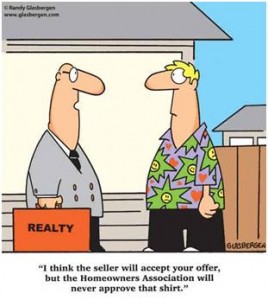If you read enough and talked to enough people, you will often hear this when people talk about making an offer on a home:
“We put in a full price offer and didn’t get the house!”
or
“The seller’s accepted an offer from someone who offered less than we did!”
Most peoples gut instinct leads them to believe that what matters in making an offer on a home is the price. Part of this may start from real estate agents incessant harping that “price is everything”. And while aggressive pricing is the key factor in getting a home sold, there are other factors besides price that a seller should evaluate on any offer their home receives. And if the seller is evaluating other factors, the savvy buyer will consider those factors when making an offer on a home…
Factors other than purchase price that influence a seller’s acceptance:
- Earnest Money
- Down Payment
- Method of financing
- Requested closing date
- Buyer’s contingencies
- Buyer’s motives
- Seller’s motivation
- Local market conditions
- Negotiability
Let’s look at each of these items:
Earnest Money: Earnest money is, “A deposit paid by a buyer to a seller to demonstrate intention to complete the purchase.” Generally speaking, the higher the amount, the more faith a seller will have that the buyer is serious about completing the transaction. A large earnest money deposit also signals the seller that the buyer is at least somewhat financially secure and in a good position to close the transaction.
Down Payment: In these days of the “credit crisis”, sellers want to feel assured that potential buyers can get a mortgage. Remember, once the seller accepts your offer, their home is effectively taken off the market. At that point they need the buyer to close the deal. In the San Diego real estate market, many transactions fall apart because the buyer ultimately doesn’t qualify for a mortgage. The seller gets nothing if this happens. A large down payment is a strong signal that you can obtain a mortgage.
Method of Financing: While FHA and VA financing have advantages for home buyers, there are costs associated on these loan types for the sellers.
Requested Closing Date: Some sellers want a quick closing date and some times will accept a slightly lower cash offer. Generally speaking, if the home is not occupied and not leased by the seller, they’re going to want as speedy a closing date as possible. If the seller is currently residing in the home, a quick close may or may not be desired.
Buyer’s Contingencies: An offer contingent on the buyer selling their current home may just be the kiss of death in the current market. Yes, most sellers are happy to get any offer. But saddle your offer with the contingency that you have to sell your own home before hand you can purchase the new one and you’ll likely have an offer rejection in the very near future.
Buyer’s Motives: Is the buyer an investor intending to turn the property into a rental, or will they be occupying the home? Generally speaking, investors are far less emotionally attached to a particular home. Some seller’s prefer dealing with investor buyers, some prefer dealing with owner occupants.
Seller’s Motivation: Sometimes, a good buyer agent can glean hints as to the seller’s motivation (conversely, a good listing agent would never reveal this information and jeopardize their clients negotiating position). If you can determine why the seller has the home listed, you may be able to tailor your offer a little. For example, if an owner is transferring out of state, a quick close may make your offer more appealing, even against one that is offering a higher price.
Local Market Conditions: Are you in a sellers market or a buyers market? Are bank owned homes moving better than resales? Is there a new home builder nearby offering discounts? Are you looking in a neighborhood where the amenities offset some of the poor market conditions found elsewhere? Local (and I mean LOCAL) market conditions can play an important role in the psyche of both the buyer and seller. Thinking in too broad a market area when you are analyzing market conditions may just get your offer declined.
Negotiability: If you look at enough home purchase offers, you get to where you can determine relatively well if the buyer is willing to negotiate on any terms. Personally, I think all parties in a real estate transaction should be willing to negotiate. If a buyer comes in with a hard line, no negotiations allowed offer, then Mr. and Mrs. Seller are quite likely to say “Buh bye” to your offer without even giving it any consideration. Be flexible on things that don’t matter to you, and stand firm where you have to. But don’t slam the door shut before it’s even had a chance to crack open.
So, what does make a strong offer?
Tough to say. Every home, and every seller, is different. The offer price is not the only aspect of the transaction sellers take into consideration when they decide whether or not to accept an offer. Of course price is important, probably the single most important factor in an offer. But it’s not the only factor. When you are working with your buyer’s agent to draft an offer, keep in mind all of the items listed above. As of the posting of this blog February 2013 in San Diego crafting a strong offer is part art, part science, and part voodoo. It’s easy to get stuck in “offer price is all that matters” mode and yet remember, it's not all that matters!
Know anybody looking to buy or sell a home? Contact:
I go to Extremes to fulfill your Real Estate dreams!








